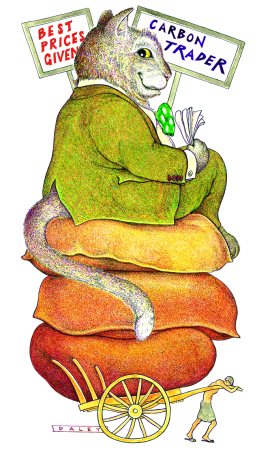The West’s new greenness conceals a giant protectionist racket
On 27 September, President George W. Bush will finally come in from the cold over global warming. On that day he will host a conference in Washington to be attended by what he has defined as the world’s 15 most polluting nations. He intends, for the first time, to commit the United States to slashing its carbon emissions.
That, anyway, is the positive spin. Alternatively, one might put Bush’s multilateralist initiative like this: he is fed up with being depicted as the bad boy of climate change. Rather than keeping the US out of the world’s efforts to reduce carbon emissions, as he did when he withdrew from the Kyoto treaty, he has seen an opportunity in joining the process: to suppress industrial competition from the Third World. He has already made clear his price for committing the US to cutting carbon emissions: to impose similar cuts on the developing nations invited to the conference, which include China, India, Mexico, Brazil and Indonesia. Don’t be the least surprised if he gets away with it. It isn’t only President Bush who appears to think that it is the duty of the world’s poor to carry the can for the fossil fuel-guzzling habits of the West. One doesn’t have to deny, or even question, the science of global warming to come to the conclusion that the West’s policy on global warming is rapidly evolving into a giant protectionist racket against the developing world.
When the Kyoto treaty was signed in 1997, developing nations were exempt from targets obliging them to cut their carbon emissions. The argument for excluding them was thoroughly logical: their per-capita carbon emissions were only a fraction of those of the developed world. It was the duty of the rich nations to set an example in cutting their own emissions before any targets were imposed on developing nations.
Since 1997, Western efforts to cut carbon emissions have come to almost naught.









Comments
Join the debate for just £1 a month
Be part of the conversation with other Spectator readers by getting your first three months for £3.
UNLOCK ACCESS Just £1 a monthAlready a subscriber? Log in